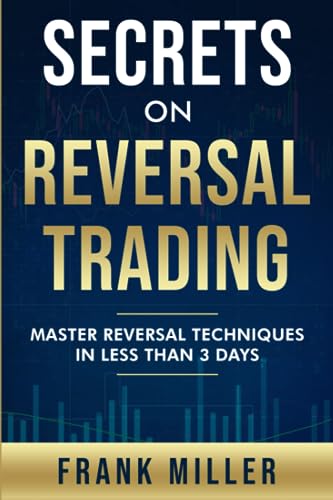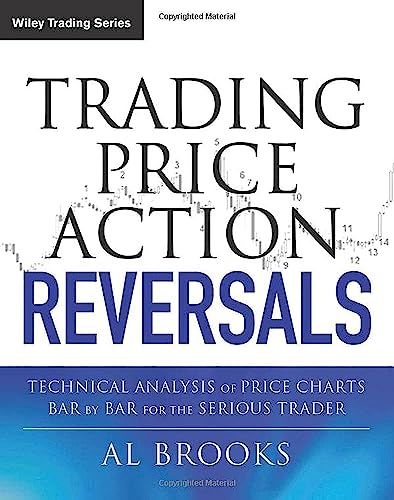- Miller, Frank (Author)
- English (Publication Language)
- 92 Pages - 11/01/2020 (Publication Date) - Independently published (Publisher)
Introduction
Reversal trading is a powerful strategy that can help traders maximize their profits in the financial markets. By identifying key turning points in price trends, reversal traders aim to enter positions at the beginning of a new trend, allowing them to capture substantial gains. In this article, we will explore the concept of reversal trading and provide valuable insights on how to start with profit.
Understanding Reversal Trading
Reversal trading is based on the idea that markets tend to reverse their direction after a significant move. Traders who employ this strategy look for specific chart patterns or indicators that indicate a potential reversal. These patterns can include double tops or bottoms, head and shoulders, or bullish/bearish engulfing patterns.
Identifying Reversal Signals
To successfully trade reversals, it is crucial to identify reliable reversal signals. Traders often use technical indicators such as the Relative Strength Index (RSI), Moving Average Convergence Divergence (MACD), or Stochastic Oscillator to spot potential reversals. These indicators help traders gauge overbought or oversold conditions, signaling a possible trend reversal.
Entry and Exit Points
Timing is key when it comes to reversal trading. Traders need to identify optimal entry and exit points to maximize their profits. One common approach is to enter a trade once a reversal signal is confirmed, such as a breakout of a trendline or a significant price level. Traders can then set a stop-loss order below the recent swing low or high, depending on the direction of the trade, to protect against potential losses.
Managing Risk
Like any trading strategy, managing risk is crucial in reversal trading. Traders should always determine their risk tolerance and set appropriate stop-loss levels to limit potential losses. Additionally, it is essential to use proper position sizing and not risk an excessive amount of capital on a single trade. By implementing effective risk management techniques, traders can protect their capital and improve their overall profitability.
Testing and Refining the Strategy
Successful reversal trading requires practice and continuous improvement. Traders should backtest their strategy on historical price data to evaluate its performance and make necessary adjustments. It is also advisable to keep a trading journal to record trades, analyze mistakes, and identify areas for improvement. By constantly refining the strategy, traders can enhance their chances of consistent profitability.
Conclusion
Reversal trading can be a highly profitable strategy for traders who can accurately identify trend reversals and time their entries and exits effectively. By understanding the concept of reversal trading, identifying reliable signals, managing risk, and continuously refining the strategy, traders can start with profit and achieve long-term success in the financial markets.
- Miller, Frank (Author)
- English (Publication Language)
- 92 Pages - 11/01/2020 (Publication Date) - Independently published (Publisher)
- Hardcover Book
- Brooks, Al (Author)
- English (Publication Language)
- 576 Pages - 01/24/2012 (Publication Date) - Wiley (Publisher)
- Turner, Robert (Author)
- English (Publication Language)
- 83 Pages - 06/18/2023 (Publication Date) - Independently published (Publisher)
- Teally, Robb (Author)
- English (Publication Language)
- 142 Pages - 08/06/2024 (Publication Date) - Independently published (Publisher)
Last Updated on November 11, 2023 by ingmin




